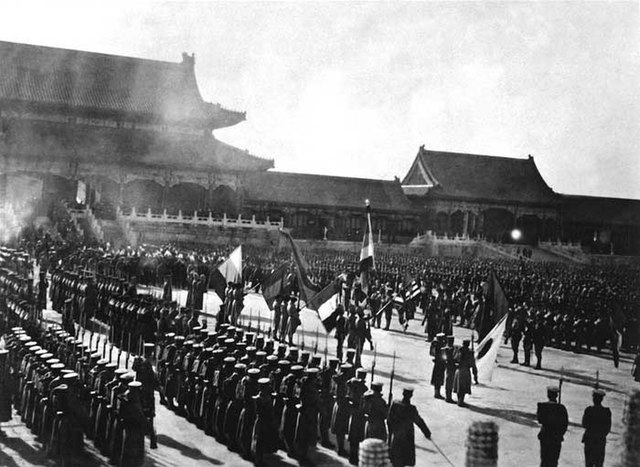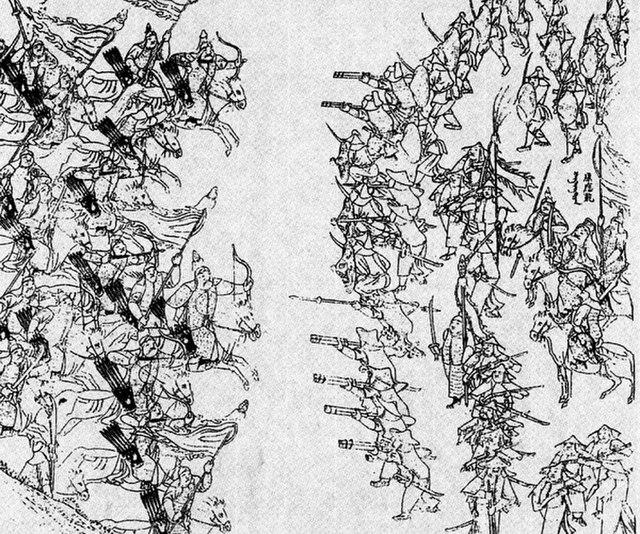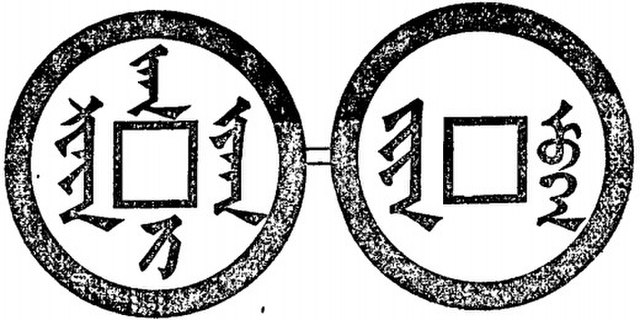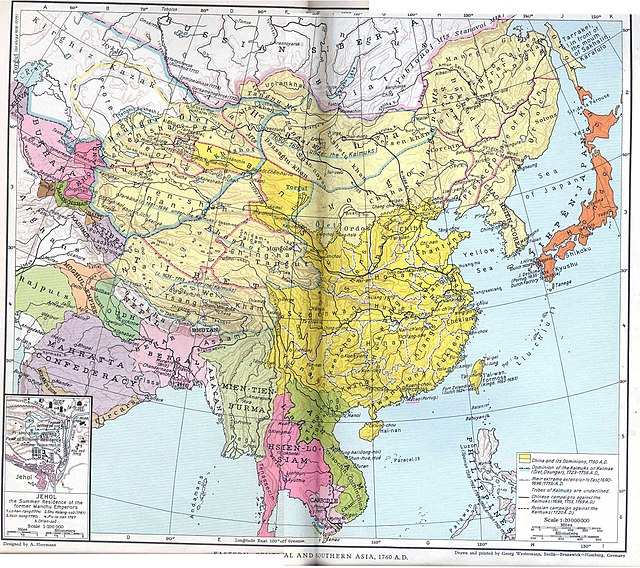Unequal treaties refer to a series of treaties signed during the 19th and early 20th centuries, between China and various foreign powers. The agreements, often reached after a military defeat or a threat of military invasion, contained one-sided terms, requiring China to cede land, pay reparations, open treaty ports, give up tariff autonomy, legalise opium import, and grant extraterritorial privileges to foreign citizens.
The Eight-Nation Alliance inside the Chinese imperial palace, the Forbidden City, during a celebration ceremony after the signing of the Boxer Protocol, 1901.
The Qing dynasty, officially the Great Qing, was a Manchu-led imperial dynasty of China and the last imperial dynasty in Chinese history. The dynasty, proclaimed in Shenyang in 1636, seized control of Beijing in 1644, which is considered the start of the dynasty's rule. The dynasty lasted until 1912, when it was overthrown in the Xinhai Revolution. In Chinese historiography, the Qing dynasty was preceded by the Ming dynasty and succeeded by the Republic of China. The multi-ethnic Qing dynasty assembled the territorial base for modern China. It was the largest imperial dynasty in the history of China and in 1790 the fourth-largest empire in world history in terms of territorial size. With over 426 million citizens in 1907, it was the most populous country in the world at the time.
Manchu cavalry charging Ming infantry battle of Sarhu in 1619
Sura han ni chiha (Coins of Tiancong Khan) in Manchu alphabet
Dorgon (1612–1650)
The Qing conquest of the Ming and expansion of the empire





